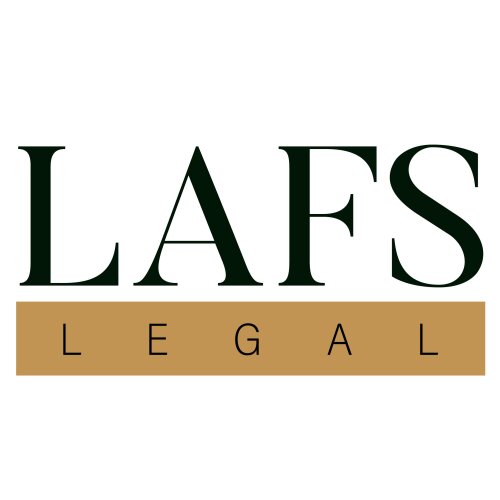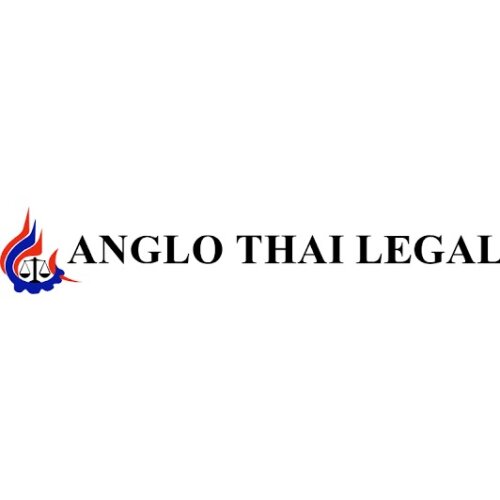ทนายความ ทรัสต์ ที่ดีที่สุดใน ประเทศไทย
แบ่งปันความต้องการของคุณกับเรา รับการติดต่อจากสำนักงานกฎหมาย
ฟรี ใช้เวลา 2 นาที
หรือปรับแต่งการค้นหาของคุณโดยเลือกเมือง:
รายชื่อทนายความที่ดีที่สุดใน ประเทศไทย
คู่มือกฎหมายเขียนโดย GPS Legal:
- Thailand’s SMART Visa program: What you should know
- Estate planning goes beyond wills
- Buying a condo in Thailand as a foreigner
1. เกี่ยวกับกฎหมายทรัสต์ในประเทศไทย
ทรัสต์ในประเทศไทยมักถูกสร้างขึ้นผ่านสัญญาทรัสต์ที่ระบุบทบาทและหน้าที่ของผู้ตั้งทรัสต์ ผู้ดูแลทรัสต์ และผู้รับประโยชน์ โดยส่วนใหญ่จะอิงหลักการของประมวลกฎหมายแพ่งและพาณิชย์แทนการมีพระราชบัญญัติตรรัสต์ฉบับเดียว
ในทางปฏิบัติ ผู้ตั้งทรัสต์ (settlor) จะถ่ายโอนทรัพย์สินให้ผู้ดูแลทรัสต์ (trustee) เพื่อบริหารให้ผู้รับประโยชน์ได้รับประโยชน์ตามข้อตกลง ซึ่งบทบัญญัติด้านความรับผิดชอบของ trustee จะถูกตีความตามสัญญาและกฎหมายแพ่ง
ข้อสังเกตสำคัญ ทรัสต์ในไทยมักถูกนำไปใช้เพื่อการจัดการมรดก การดูแลเด็กหรือผู้พิการ และการบริหารทรัพย์สินข้ามแดนผ่านสัญญาทรัสต์ที่มีผู้เชี่ยวชาญดูแลด้านกฎหมายและภาษี
ทรัสต์ในประเทศไทยขึ้นกับสัญญาและหลักการกฎหมายแพ่งมากกว่ากฎหมายเฉพาะด้านทรัสต์
ในทางปฏิบัติ ทรัสต์ที่ดินจะต้องพิจารณาการโอนทรัพย์สินและการจดทะเบียนที่เกี่ยวข้องกับท้องถิ่น
แหล่งข้อมูลอ้างอิง
2. ทำไมคุณอาจต้องการทนายความ
กรณีที่ต้องพิจารณาจ้างทนายความด้านทรัสต์มักเกี่ยวข้องกับความซับซ้อนทางกฎหมายและการวางแผนระยะยาว
- ครอบครัวมีบุตรหลายคนต้องการแบ่งทรัพย์สินอย่างเป็นธรรม โดยคงสภาพองค์กรทรัสต์ให้ทันต่อสถานะของบุตรที่ยังไม่บรรลุนิติภาวะ
- มีทรัพย์สินหลายประเทศ ความซับซ้อนด้านภาษีและการโอนทรัพย์ระหว่างประเทศจำเป็นต้องมีทนายช่วยออกแบบข้อตกลงทรัสต์ให้สอดคล้องกฎหมายแต่ละประเทศ
- ต้องการทรัสต์เพื่อการกุศลหรือทรัสต์เพื่อการบริหารทรัพย์สินของบริษัทครอบครัว ซึ่งผู้ดูแลต้องมีความรับผิดชอบทางกฎหมายและภาษี
- ธุรกิจที่เสี่ยงด้านกฎหมายสูง เช่น บริษัทที่มีหนี้สินหรือข้อพิพาท ผู้ดูแลทรัสต์จะต้องวางมาตรการป้องกันความเสียหาย
- ผู้มีทรัพย์สินที่ดินในประเทศไทยต้องการโอนทรัพย์สินเข้าทรัสต์ ผู้รับประโยชน์อาจมีข้อจำกัดในภาษีที่ต่างประเทศ
- วางแผนมรดกและลดความเสี่ยงการหย่าร้างที่อาจส่งผลต่อทรัพย์สินของครอบครัว
การมีทนายความช่วยเหลือจะช่วยให้สัญญาทรัสต์มีความชัดเจน ปลอดภาระผูกพัน และสามารถบังคับใช้ได้จริงตามกฎหมาย
3. ภาพรวมกฎหมายท้องถิ่น
ในประเทศไทย กฎหมายทรัสต์ไม่ได้มีกฎหมายเฉพาะฉบับเดียว แต่มีกรอบหลักที่เกี่ยวข้องดังนี้
- ประมวลกฎหมายแพ่งและพาณิชย์ กำกับสัญญาและการถือครองทรัพย์สิน รวมถึงความรับผิดชอบของผู้ดูแลทรัสต์และสิทธิของผู้รับประโยชน์
- กฎหมายที่เกี่ยวข้องกับทรัสต์เพื่อการลงทุนในทรัพย์สิน (REITs) และการลงทุนในทรัพย์สินทางการเงิน ซึ่งอยู่ในกรอบตลาดทุนและการกำกับดูแลของสำนักงานคณะกรรมการกำกับหลักทรัพย์และตลาดทุน (SEC)
- กฎหมายภาษี ซึ่งมีผลต่อการจัดตั้งและการดำเนินการทรัสต์ โดยเฉพาะประเด็นการโอนทรัพย์ การรับรายได้ และการหักภาษี
แนวคิดทางกฎหมายเฉพาะทางมักถูกตีความผ่านสัญญาทรัสต์และหลักการของประมวลกฎหมายแพ่ง
ทรัสต์โดยทั่วไปยังถือเป็นสัญญาทรัสต์ที่อยู่ภายใต้หลักการแพ่งมากกว่ากฎหมายทรัสต์ฉบับเดียว
แหล่งข้อมูลอ้างอิง
- กระทรวงยุติธรรม
- Securities and Exchange Commission (SEC) Thailand
- กรมพัฒนาธุรกิจการค้า กระทรวงพาณิชย์
4. คำถามที่พบบ่อย
ทรัสต์คืออะไรในบริบทกฎหมายไทย และใครบทบาทสำคัญ?
ทรัสต์คือข้อตกลงระหว่างผู้ตั้งทรัสต์ ผู้ดูแลทรัสต์ และผู้รับประโยชน์ ผู้ดูแลทรัสต์บริหารทรัพย์ให้ผู้รับประโยชน์ได้รับประโยชน์ตามข้อตกลง
ทรัสต์ต่างจากพินัยกรรมและมรดกอย่างไรในประเทศไทย?
ทรัสต์มีการบริหารทรัพย์ระหว่างชีวิตหรือหลังเหตุการณ์ตามสัญญา ส่วนพินัยกรรมเป็นคำสั่งถ่ายทอดทรัพย์หลังเสียชีวิตเมื่อเปิดใช้งาน
ฉันจะเริ่มตั้งทรัสต์ได้อย่างไร และต้องมีทนายความช่วยเหลือไหม
เริ่มจากกำหนดวัตถุประสงค์และทรัพย์สิน จากนั้นว่าจ้างทนายความเพื่อร่างข้อตกลงทรัสต์และตรวจสอบข้อกฎหมายภาษี
ทรัพย์สินประเภทใดบ้างที่สามารถตั้งทรัสต์ได้
ทรัพย์สินที่หลากหลาย เช่น เงินสด บ้าน ที่ดิน บริษัท หรือทรัพย์สินระหว่างประเทศที่ต้องการการบริหารแบบพิเศษ
ค่าใช้จ่ายในการตั้งทรัสต์มักประกอบด้วยอะไรบ้าง
ค่าเอกสาร ค่าทนายความ และค่าจัดทำสัญญาทรัสต์ ค่าใช้จ่ายจริงขึ้นกับความซับซ้อนของทรัพย์สินและขอบเขตประโยชน์
ระยะเวลาการจัดตั้งทรัสต์โดยทั่วไปจะนานแค่ไหน
โดยทั่วไปอยู่ที่ 2-8 สัปดาห์ขึ้นกับความซับซ้อนของสัญญา และการโอนทรัพย์สินที่ต้องทำ
ฉันต้องจดทะเบียนทรัสต์ที่ดินหรือไม่
ทรัสต์ที่มีทรัพย์สินที่ดินอาจต้องดำเนินการโอนทรัพย์สินไปยัง trustee และตรวจสอบการจดทะเบียนทรัพย์สินกับกรมที่ดิน
ความรับผิดทางกฎหมายของผู้ดูแลทรัสต์คืออะไร
trustee ต้องดูแลทรัพย์สินด้วยความระมัดระวัง รับผิดชอบต่อผู้รับประโยชน์ และปฏิบัติตามเงื่อนไขสัญญา
ทรัสต์สามารถวางแผนภาษีได้จริงหรือไม่
ทรัสต์บางแบบอาจมีประโยชน์ด้านภาษีขึ้นกับโครงสร้างและที่ตั้งทรัพย์สิน แต่ควรปรึกษาทนายและผู้เชี่ยวชาญภาษีเพื่อประเมินอัตราภาษีจริง
ความแตกต่างระหว่างทรัสต์กับการมอบทรัพย์ให้ดูแลโดยผู้อื่นคืออะไร
ทรัสต์เป็นข้อตกลงทางกฎหมายระหว่างหลายฝ่ายและมีการบริหารทรัพย์แบบต่อเนื่อง ไม่ใช่การมอบทรัพย์แบบหนึ่งคนที่ไม่มีกลไกบริหารชัดเจน
ฉันควรตั้งทรัสต์เพื่อการกุศลหรือไม่
ทรัสต์เพื่อการกุศลช่วยให้ทรัพย์สินถูกใช้เพื่อวัตถุประสงค์สาธารณะ แต่ต้องมีการกำกับดูแลและเปิดเผยข้อมูลเพื่อความโปร่งใส
ทรัสต์มีความยืดหยุ่นในการเปลี่ยนแปลงหรือไม่
ข้อตกลงทรัสต์สามารถระบุเงื่อนไขการเปลี่ยนแปลงได้ หากมีเหตุการณ์ที่ทรัสต์จำเป็นต้องปรับปรุง
ฉันสามารถยกเลิกทรัสต์ได้หรือไม่
การยกเลิกขึ้นกับข้อกำหนดในข้อตกลงทรัสต์ ถ้าทรัพย์สินถูกโอนแล้ว การยกเลิกอาจทำได้ยากและต้องขั้นตอนทางกฎหมาย
5. ทรัพยากรเพิ่มเติม
นักกฎหมายและเจ้าหน้าที่รัฐมักชี้แนะให้ศึกษากรอบกฎหมายจากแหล่งทางการต่อไปนี้เพื่อความชัดเจน
- กระทรวงยุติธรรม - ข้อมูลทั่วไปเกี่ยวกับกฎหมายและการร้องเรียน
- Securities and Exchange Commission (SEC) Thailand - ข้อมูลเกี่ยวกับทรัสต์เพื่อการลงทุนในทรัพย์สิน (REITs) และกฎหมายที่เกี่ยวข้อง
- กรมพัฒนาธุรกิจการค้า กระทรวงพาณิชย์ - ข้อมูลด้านสัญญาและการบริหารทรัพย์ในเชิงพาณิชย์
6. ขั้นตอนถัดไป
- กำหนดวัตถุประสงค์ทรัสต์ให้ชัดเจน เช่น การดูแลบุตร การยกทรัพย์สินให้ผู้รับประโยชน์ และการบริหารทรัพย์นอกประเทศ
- รวบรวมทรัพย์สินที่จะถ่ายโอนเข้าทรัสต์ และระบุมูลค่าทรัพย์สินโดยประมาณ
- คัดเลือก trustee ที่มีความน่าเชื่อถือและมีประสบการณ์ด้านทรัสต์ มีคุณสมบัติเหมาะสม
- จ้างทนายความเพื่อร่างข้อตกลงทรัสต์อย่างละเอียด และตรวจสอบภาษี
- ร่างข้อตกลงทรัสต์และตรวจสอบความสอดคล้องกับกฎหมายที่เกี่ยวข้อง
- โอนทรัพย์สินเข้าสู่ทรัสต์ ตามขั้นตอนที่กฎหมายกำหนด และจดทะเบียนหรือแจ้งกับหน่วยงานที่เกี่ยวข้องเมื่อจำเป็น
- ติดตามการบริหารทรัสต์และปรับปรุงข้อตกลงเมื่อจำเป็น พร้อมรายงานผู้รับประโยชน์
Lawzana ช่วยคุณค้นหาทนายความและสำนักงานกฎหมายที่ดีที่สุด ใน ประเทศไทย ผ่านรายชื่อผู้เชี่ยวชาญด้านกฎหมายที่มีคุณสมบัติเหมาะสมที่คัดสรรและตรวจสอบล่วงหน้า แพลตฟอร์มของเรานำเสนอการจัดอันดับและโปรไฟล์โดยละเอียดของทนายความและสำนักงานกฎหมาย ช่วยให้คุณเปรียบเทียบตามสาขากฎหมาย รวมถึง ทรัสต์ ประสบการณ์ และความคิดเห็นของลูกค้า
แต่ละโปรไฟล์ประกอบด้วยคำอธิบายเกี่ยวกับสาขากฎหมายของสำนักงาน รีวิวจากลูกค้า สมาชิกในทีมและหุ้นส่วน ปีที่ก่อตั้ง ภาษาที่พูด ที่ตั้งสำนักงาน ข้อมูลการติดต่อ การมีตัวตนบนโซเชียลมีเดีย และบทความหรือแหล่งข้อมูลที่เผยแพร่ สำนักงานส่วนใหญ่บนแพลตฟอร์มของเราพูดภาษาอังกฤษและมีประสบการณ์ทั้งในเรื่องกฎหมายท้องถิ่นและระหว่างประเทศ
ขอใบเสนอราคาจากสำนักงานกฎหมายชั้นนำ ใน ประเทศไทย — รวดเร็ว ปลอดภัย และไม่ยุ่งยาก
ข้อจำกัดความรับผิดชอบ:
ข้อมูลที่ให้ไว้ในหน้านี้มีวัตถุประสงค์เพื่อเป็นข้อมูลทั่วไปเท่านั้นและไม่ถือเป็นคำแนะนำทางกฎหมาย แม้ว่าเราจะพยายามตรวจสอบความถูกต้องและความเกี่ยวข้องของเนื้อหา แต่ข้อมูลทางกฎหมายอาจเปลี่ยนแปลงได้ตามกาลเวลา และการตีความกฎหมายอาจแตกต่างกันไป คุณควรปรึกษาผู้เชี่ยวชาญด้านกฎหมายที่มีคุณสมบัติเหมาะสมเพื่อขอคำแนะนำเฉพาะสำหรับสถานการณ์ของคุณเสมอ
เราปฏิเสธความรับผิดทั้งหมดสำหรับการกระทำที่ทำหรือไม่ทำตามเนื้อหาในหน้านี้ หากคุณเชื่อว่าข้อมูลใดไม่ถูกต้องหรือล้าสมัย โปรด contact us และเราจะตรวจสอบและแก้ไขตามความเหมาะสม
เรียกดูสำนักงานกฎหมาย ทรัสต์ ตามเมืองใน ประเทศไทย
ปรับแต่งการค้นหาของคุณโดยเลือกเมือง

















